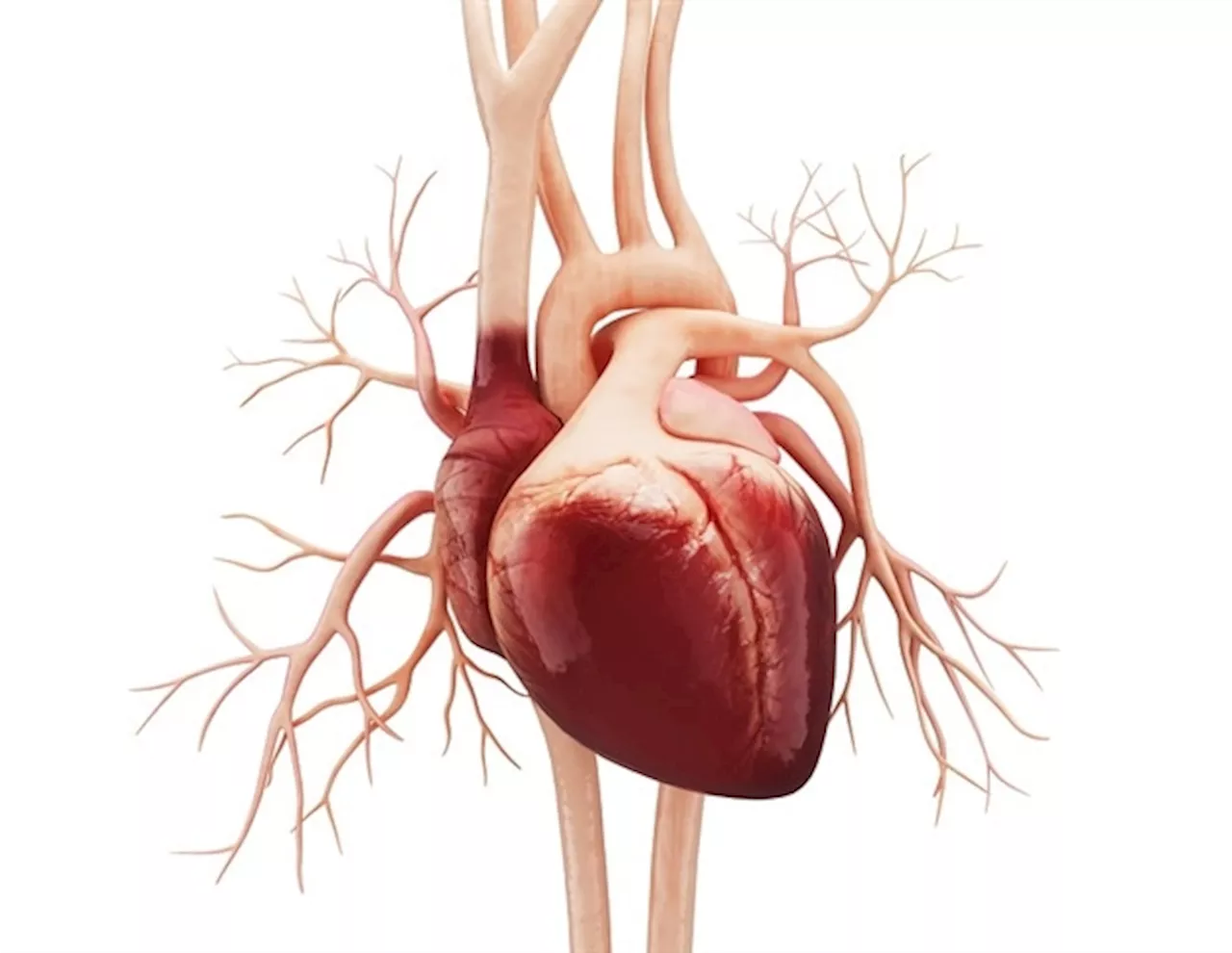In a study that reshapes what we know about COVID-19 and its most perplexing symptoms, scientists have discovered that the blood coagulation protein fibrin causes the unusual clotting and inflammation that have become hallmarks of the disease, while also suppressing the body's ability to clear the virus.
Gladstone InstitutesAug 29 2024 In a study that reshapes what we know about COVID-19 and its most perplexing symptoms, scientists have discovered that the blood coagulation protein fibrin causes the unusual clotting and inflammation that have become hallmarks of the disease, while also suppressing the body's ability to clear the virus.
Knowing that fibrin is the instigator of inflammation and neurological symptoms, we can build a new path forward for treating the disease at the root. In our experiments in mice, neutralizing blood toxicity with fibrin antibody therapy can protect the brain and body after COVID infection." "We know of many other viruses that unleash a similar cytokine storm in response to infection, but without causing blood clotting activity as we see with COVID," says Warner Greene, MD, PhD, senior investigator and director emeritus at Gladstone, who co-led the study with Akassoglou.
In addition to discovering that fibrin sets off inflammation, the team made another important discovery: fibrin also suppresses the body's "natural killer," or NK, cells, which normally work to clear the virus from the body. Remarkably, when the scientists depleted fibrin in the mice, NK cells were able to clear the virus.
"Fibrin that leaks into the brain may be the culprit for COVID-19 and long COVID patients with neurologic symptoms, including brain fog and difficulty concentrating," Akassoglou says. "Inhibiting fibrin protects neurons from harmful inflammation after COVID-19 infection." Akassoglou's lab previously developed a drug, a therapeutic monoclonal antibody, that acts only on fibrin's inflammatory properties without adverse effects on blood coagulation and protects mice from multiple sclerosis and Alzheimer's disease.
Brain Covid-19 Alzheimer's Disease Antibody Fibrosis Immune System Immunology Immunotherapy Inflammation Lungs Microglia Multiple Sclerosis Neurons Pandemic Protein Sclerosis Stroke Virology Virus
United Kingdom Latest News, United Kingdom Headlines
Similar News:You can also read news stories similar to this one that we have collected from other news sources.
 Study finds lower risk of heart attacks and strokes after COVID-19 vaccinationThe incidence of heart attacks and strokes was lower after COVID-19 vaccination than before or without vaccination, according to a new study involving nearly the whole adult population of England.
Study finds lower risk of heart attacks and strokes after COVID-19 vaccinationThe incidence of heart attacks and strokes was lower after COVID-19 vaccination than before or without vaccination, according to a new study involving nearly the whole adult population of England.
Read more »
 Long COVID ties with heart disease for health outcomes: Vaccines reduce risk, study findsLong COVID is on par with heart disease in terms of its severity, but vaccination reduces risks of long COVID by nearly 70%, say researchers at Washington University.
Long COVID ties with heart disease for health outcomes: Vaccines reduce risk, study findsLong COVID is on par with heart disease in terms of its severity, but vaccination reduces risks of long COVID by nearly 70%, say researchers at Washington University.
Read more »
 Study indicates vaccines targeting nose, mouth may be key to controlling spread of COVID-19The lightning-fast development of COVID-19 vaccines just months after the virus appeared was a triumph of modern science and saved millions of lives. But for all the good they did in reducing illnesses and deaths, the shots were unable to end the pandemic because of one notable weakness: They couldn't stop the spread of the virus.
Study indicates vaccines targeting nose, mouth may be key to controlling spread of COVID-19The lightning-fast development of COVID-19 vaccines just months after the virus appeared was a triumph of modern science and saved millions of lives. But for all the good they did in reducing illnesses and deaths, the shots were unable to end the pandemic because of one notable weakness: They couldn't stop the spread of the virus.
Read more »
 Around 160,000 UK joint replacement surgeries missed during COVID-19 pandemic, study findsNearly nine months' worth of joint replacement surgery has been missed in the UK—around 160,000 operations—since the start of the COVID-19 pandemic, a new study led by the University of Bristol has found.
Around 160,000 UK joint replacement surgeries missed during COVID-19 pandemic, study findsNearly nine months' worth of joint replacement surgery has been missed in the UK—around 160,000 operations—since the start of the COVID-19 pandemic, a new study led by the University of Bristol has found.
Read more »
 Nine months of joint replacement surgery lost due to COVID-19, study revealsNearly nine months of joint replacement surgery has been lost - around 160,000 fewer operations - since the start of the COVID-19 pandemic, a new study led by the University of Bristol has found.
Nine months of joint replacement surgery lost due to COVID-19, study revealsNearly nine months of joint replacement surgery has been lost - around 160,000 fewer operations - since the start of the COVID-19 pandemic, a new study led by the University of Bristol has found.
Read more »
 COVID-19 significantly increases risk of hearing loss in young adults, study findsYoung adults with COVID-19 face a significantly higher risk of hearing loss and sudden sensorineural hearing loss. Researchers urge awareness and further investigation into COVID-19-related auditory damage.
COVID-19 significantly increases risk of hearing loss in young adults, study findsYoung adults with COVID-19 face a significantly higher risk of hearing loss and sudden sensorineural hearing loss. Researchers urge awareness and further investigation into COVID-19-related auditory damage.
Read more »
